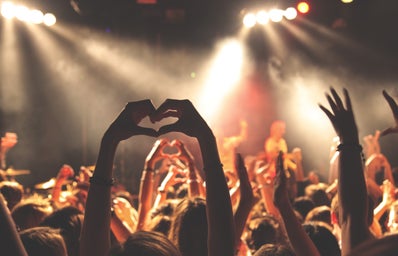*This article contains spoilers*
Using the Dear White People film as the inspiration for the titular series, Dear White People Vol. 1, set up the framework for the series with the infamous blackface fiasco. Amid her initial character development and activism against the racist system (on and off Winchester’s campus), Sam White also began to develop a romantic relationship with Gabe.
At first, I was hesitant to board the Sam and Gabe boat. However, Sam seemed happy in her romance with Gabe, and like any ordinary friend to a fictional character, I wanted to support Sam in all her ventures and flings. My Sam and Gabe-shipping might have been a subsequent side effect from my Sam fandom, when, in reality, their coupledom is a reckless Tinder swipe that turned into a prolonged, yet inadvertent, relationship.
Maybe my affinity for problematic men led me to believe that Sam could help Gabe be a better person—or at least a less toxic other half in a situationship SO. Or maybe I chose to anesthetize myself to the problematic symptoms in the duo’s relationship. Regardless, I’m figuratively getting in a lifeboat and paddling away from the Sam and Gabe ship, and here’s why.
Why you need see #DearWhitePeople‘s epic fight between a black woman (@LoganLaurice) and her white ex-boyfriend (@thebughero) https://t.co/Xy5wMOoQAI @JSim07 pic.twitter.com/aTy3oLTKJa
— TV Guide (@TVGuide) May 9, 2018
Gabe plagiarized and spark noted Sam’s work.
TBH, there are rough, choppy waves in a relationship and then there’s whatever the heck Gabe did with his documentary. While undercurrents are typically unexpected and only narrowly discernable because they’re below the water’s surface, they can overpower even the strongest swimmer—and Gabe’s covert documentary in Vol. 2 was a deceptive blow to their relationship and it drifted Sam away from him. Nevertheless, that wasn’t the most perilous aftereffect from Gabe’s flick.
While Gabe claims that his Am I Racist? production was a school syndicated project, it’s obvious that Gabe’s documentary has a lot of similarities to Sam’s “Dear White People” radio production.
Though Gabe claims his documentary will explore if a white man can fight against innate prejudices against people of color, the premise of his production is not only dismissive of Sam’s work (which she spearheaded long before Gabe’s debuted in her life), it’s hypocritical. After all, Gabe was the person who called the police in volume one, which led to the cops drawing their guns on Reggie, as well as Reggie’s subsequent PTSD.
The reason that Gabe called the cops during that party was because of his inherent privilege as a white man. Statistically, people of color (especially black men), are more likely to be victims of fatal police gun violence. Because Gabe’s perception of the police is positive, he called the police with the intention of peacefully diffusing the situation between Reggie and that irrelevant racist from Vol. 1. (But even well-intended actions are meaningless if they result in a negative outcome.)
Ultimately, Gabe’s white privilege of being statistically less-inclined to be killed by police is what pushed him to call the police. In a way, his privilege contributed to his decision that put Reggie’s mental and physical well-being at risk (as well as every POC’s mental health at risk for vicarious PTSD).
Because Gabe lacks the lived experiences of being racially profiled by the police, he implemented an insular approach to solve a minor dilemma, and thus escalated the situation. Instead of accepting his problematic, and potentially lethal actions, Gabe exploits Reggie’s narrative to focus on the white person’s point of view of moving past their bias. Using the self-created situation between the cops and Reggie, Gabe sanctimoniously continues to profit—academically—from Reggie’s misfortune.
Somehow Gabe decided to drown the actual issue of this situation (which is his synchronous bias and ignorance); instead, Gabe exploited Sam’s friends and used them for quotes in his documentary.
It might seem like Gabe is using his fake-woke documentary to supplement Sam’s radio show, but he never actually asked her permission to hijack her points about activism.
Gabe uses a victim of racism (Reggie) to fuel his mission statement against racism and bias, which makes his credibility a bit questionable. Because of this, his entire documentary is counterproductive to exposing racists and gun-violence issues.
Subsequently, Gabe’s misdirection hinders Sam’s radio show and activism. Albeit Sam and Gabe are working on two separate projects, Am I Racist? actively invalidates Sam’s work. Though Gabe says he’s using his white privilege to aid the movement, his privilege is what escalated a lot of the events in volume one and two in the first place. Privilege can be a double-ended knife, and like a dual-ended blade, it’s dangerous. Using the same privilege that led to racial profiling to exploit that incident and then claim that you’re using that same privilege to fight racism seems like a nonsensical paradox that ultimately does nothing for Winchester University, the BSU or people of color.
Aside from Gabe’s activism-hijacking, Gabe completely ignores Sam at her most vulnerable time.
In Dear White People Vol. 2, Sam and Gabe aren’t necessarily together. Though Gabe broke it off with Sam at the end of Vol. 1, during the crest of the town hall protest, Gabe still cares about Sam as a person—or at least claims to.
Gabe might hide under the depths of his Am I Racist? documentary and use it as a way to show that he cares about the same issues as Sam; however, if he truly believed in the pillars behind being a white ally (or at least a decent f*cking acquaintance), then he would have checked-in with Sam.
Instead, Gabe ignores the real threats against Sam and simultaneously undermines cyber-racism as mere “mean tweets.” Despite the fact that cyber-racism is still racism and still elicits racism-related PTSD, Gabe doesn’t ask Sam how she’s handling the whole @AltIvyW situation.
If Gabe was authentically using Am I Racist? to fight racism, he would have recognized AltIvyW’s attacks on Sam as legitimate racist attacks—and fought against them appropriately (via reporting the accounts, acting as a supportive person to Sam, and reporting these crimes to the police). Rather, Gabe ignored these valid hate crimes and only acknowledged their existence when he needed to use them as a tool in his argument with Sam in Vol. 2: CH: 8.
In his argument, Gabe not only victim blames Sam regarding these offensive tweets, he concurrently discredits Sam’s mental health. At the height of this disagreement in Vol. 2: CH: 8, Gabe isn’t aware that Sam is also coping with her father’s health issues on top of dealing with AltIvyW. However, Gabe tries to re-imagine AltIvyW’s hateful rhetoric as anything less than a hate crime.
In turn, Gabe’s blatant dismissal of how serious these messages are (because, yet again, he looked at the situation with a narrow-minded introspect), is a way to police Sam’s feelings, emotions and mental health. Because he doesn’t recognize these tweets as attacks, he makes it seem like Sam’s reaction to them is exaggerated, and thus implies that her reaction—or the level of her reaction—isn’t justified.
However, Sam’s emotions are completely justified. Regardless of the circumstance, Sam’s emotions, concerns and mental well-being are valid because they’re hers to process. After all, these concerns directly affect her. Implying that she’s overreacting to a direct or implicit threat is essentially like telling her that her attacker has the right to offend and dehumanize her, but she doesn’t have the right to be offended by these attacks.
Nevertheless, Gabe only confronts Sam about these hate crimes while filming his Am I Racist? documentary, which shows that he is only concerned about Sam’s emotional, mental and physical well-being when it impacts him.
Regardless, Sam and Gabe’s relationship didn’t start on the best of terms.
Let’s face it: nobody is truly enthralled about anything they’re convinced to do. While we might need checklists and dozens of reminders to finish our dorm-hold chores, we don’t like doing laundry even if that does mean we get a break from studying. Chores and relationships aren’t synonymous; however, Gabe did pressure Sam into their relationship back in volume one.
Sam and Gabe embarked on their relationship because Gabe took a photo of her, ousted their coupledom to all of Sam’s friends, and captioned it with, “#HateItWhen bae leaves.” Beyond the elaborate steps that Gabe took to spark a DTR conversation, Gabe took a photo of Sam without her consent, publicized their then-situationship without her consent, and somehow convinced her that they’d have a healthy relationship together. Nonetheless, consent isn’t exclusive to sexual activities. The fact that Gabe didn’t think to ask Sam if he could take a pic of her in the first place and then post an Instagram post about her implies that he doesn’t value her opinion.
Admittedly, my hypocritical fictitious relationship-review might not be the best, given my non-fictitious relationship history is trash, but Gabe ruined their relationship even before it started because he essentially forced the label onto Sam. Though Sam and Gabe are just characters on a show, Dear White People mirrors real-life events, and thus portrays their relationship in a very real way. Like any real relationship, Sam and Gabe aren’t without fault; however, Gabe isn’t healthy for Sam. Frankly, she deserves better than someone who belittles her emotions and coerces her into a relationship.


